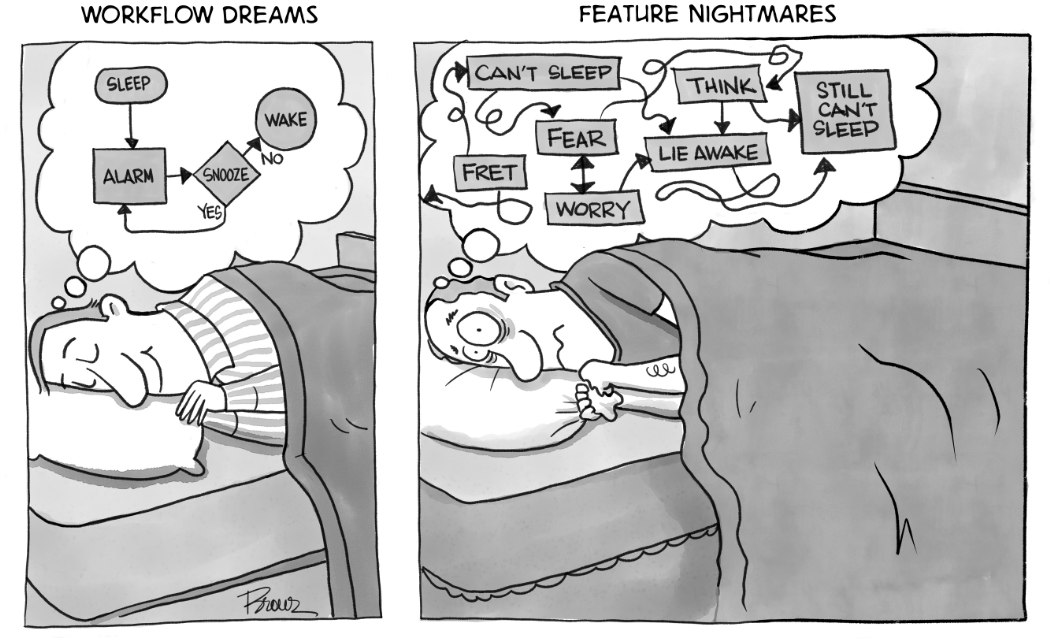TLDR: The Connected Product Economy is an unstoppable multi-trillion dollar market force. But most OEMs still manage their devices, customers and support processes like it’s 1995—with spreadsheets, siloed tools, or worse, nothing at all. Just as CRM software transformed the world 25 years ago, Connected Product businesses now need DeviceOps: a purpose-built CRM platform for their world. Without it, they’re flying blind—and falling behind.
What would your world be like if CRM software vanished from the face of the earth—or at least your business?
Imagine no system of record for your contacts, prospects, proposals, deal status, marketing campaigns, content downloads, renewal dates, support tickets—and more. It’s absurd to contemplate a world without tools to manage some of the most important elements and workflows of your business. It wouldn’t be good for you. It wouldn’t be good for your customers.
Before this seemingly indispensable software category, we used Rolodexes, PalmPilots, and filing cabinets—manual, disconnected data repositories and little or no automation. Spreadsheets became state-of-the-art for archiving and managing customer relationships. Along came cloud platforms offering feature-rich systems-of-record that also automated complex workflows across the entire customer journey. Today, there are over 7,000 SalesOps and MarketingOps companies.
And yet, in 2025, we are unnecessarily inflicting this same operational pain on ourselves, our customers and…our connected products! The Connected Product Economy is one of the largest market forces in the history of recorded business—from cars, cameras, and airplanes to medical devices, elevators, smart meters, tractors, trains, drones, and even robots. Nearly 100,000 product manufacturers, billions of customers and nearly 50 billion connected devices drive this unstoppable economic force. Thousands of companies are literally staking their entire futures on becoming digital-first businesses.
Astonishingly, in the Connected Product Economy, 99.9% of equipment manufacturers (OEMs) build, ship, analyze, integrate, support and monetize billions of devices without a systematic way to manage these essential tasks and workflows. While automation is more prevalent today, organizations know that outcomes can only come through workflows—not a collection of DIY systems, third-party tools or re-purposing CRM and ERP platforms. Operational leaders are desperate to move from Automation to Orchestration.
Adding insult to injury, it’s not as if the idea of device management and related workflows is new. While the use case and domain are somewhat different, the enterprise Mobile Device Management market is pushing $20 billion in global revenue. DeviceOps, for the connected product world alone, represents at least 10x that economic impact since there are 10x more connected products than enterprise smartphones, laptops, and tablets combined.
It’s time these OEMs—and the smart, connected products they make—had their own CRM platform. CRM for Machines is a mindset and framework that addresses the must-have foundational lifecycle management capability they all need. The real pain and value ultimately comes from creating and managing workflows throughout a company’s value chain—and their customer’s value chain. After all, trillions of dollars are at stake, not to mention the existential threat facing laggards who can’t make the shift in the Connected Product Economy.
At EdgeIQ, our customers are part of the 0.001% that have (mostly) moved beyond spreadsheets and DIY tools. Before EdgeIQ, even the best companies couldn’t tell you which devices were deployed, in transit, or sitting in a warehouse. Most didn’t know the configuration, operating system, firmware version—or when a device was last updated.
And in the absence of that system, Customer Operations teams are flying blind when a support call comes in. In 2025—shouldn’t the device be making the call itself when there’s a problem? Support teams should know—was there a software update that triggered the issue? A configuration change? A networking outage? Did data stop flowing because a third-party API broke? The list goes on.
Enter DeviceOps: CRM for Machines.
The Connected Product Economy desperately needs its own CRM platform. Businesses need a unified device system of record, remote management capabilities, software update campaign management, customer-device associations, downstream integrations and service insights. At EdgeIQ, we call this DeviceOps, which is really just the foundation for an Orchestration-driven business strategy.
DeviceOps is the foundation that enables the transformative business activities Connected Product companies dream about. Its absence is the single biggest impediment to digital transformation and perhaps survival. I often say, “You can’t monetize what you can’t manage.”
So if you want to know what life without a CRM feels like, just ask a Product Manager or Customer Operations team what it’s like to live without DeviceOps. It doesn’t have to be this way.
If you—or someone you love—is suffering through life without DeviceOps, just give us a call. We’re here to help.

